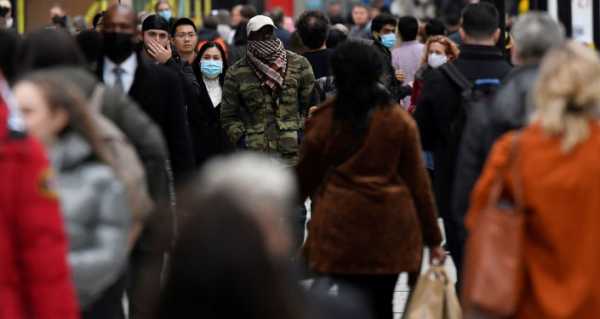
Industry leaders and consortiums were joining efforts to build sustainable supply lines via key technologies aimed at tracking and monitoring raw materials in the manufacturing process, it was found at a Reuters Ethical Corporation event this week.
The Reuters event held expert panel discussions with Mr Christian Galichon, chief product officer at LVMH, Mark Davis, sustainable operations director at Natura & Co, Jamie Barismatov, chief operating officer and co-founder of SupplyShift and Euan Murray, chief executive of the Sustainability Consortium.
Louise Nicholls, founder of Suseco and vice-chair of the Institute of Environmental Management & Assessment (IEMA), chaired the panel talks.
Sputnik takes a closer look at the measures being implemented in some of the world’s biggest industries.
Blockchain In The Supply Chain?
Mr Galichon explained how products in the luxury goods market were manufactured in precise locations of the world, with raw materials originating from specific locations globally.
But the ongoing COVID-19 pandemic had disrupted customer flows to Europe and prioritised online shopping, forcing suppliers to procure sustainable alternatives to distribution processes in a bid to lower rising corporate carbon footprints.
Numerous firms adopting sustainable supply chain practices have deployed blockchain technologies to track transfers of raw materials and assess whether the communities they were produced in faced increased risks.
Speaking on tracking efforts, Galichon said customers were asking “more and more” where the different raw materials had originated, adding: “From there, we use blockchain to [show] the full transfer of raw materials.”
Building resilience in supply chains required ‘digging in’ on key strategic categories from globally sourced products, he said earlier, adding that identifying “at-risk” supply chains was key to deepening such efforts.
Blockchain And ‘At-Risk’ Suppliers in the Global Community
Firms were tasked with stabilising demand and income for vulnerable communities at risk of major supply chain disruptions, including the ongoing COVID-19 pandemic, Mr Davis said at the event.
Suppliers considered at-risk were often based in regions such as the Amazon Basin, Samoa, Ghana, India and other forested regions, among others, with communities being in vulnerable situations, he said.
Blockchain was commonly used to map commodities in the stock market via trade flows and satellite data, and could later be transferred to a map indicating their point of origin, path in supply lines, shipment routes and production process, he said, adding deploying blockchain technologies posed data issues, including large data gaps in reported commodities.
Assessing Transparency In Supply Chains
Data from supply chain tracking could be used in a four-stage assessment, SupplyShift’s Barismatov told the audience.
Businesses should determine what to do with specific commodities, raw materials and other resources while running due diligence checks according to a ‘code of conduct’ along with possible audits, he explained.
Mr Barsmatov added that firms could identify and ‘go deeper’ into holistic issues affecting supply chains and bring relevant data into business processes and feedback loops, strengthening sustainability due diligence.
T-shirt ‘Tag’ Clothing Experiments
Euan Murray, chief executive to the Sustainability Consortium, explained how firms were testing Radio Frequency Identification (RFID) chips to build circular economies in the fast moving consumer goods (FMCG) sector.
According to him, firms were hit by major data gaps, with the largest being “the consumer themselves in how they actually use the clothes they have bought”, including washing, wearing and disposal habits, Murray explained.
The Consortium’s Project WearEver was launched to address data gaps in consumer habits by tracking wear and tear on fast moving consumer goods (FMCG) and later, incentivise market-based systems to increase durability in products.
Many firms had set targets of 13 percent recyclable materials, but only roughly 1 percent was actually recycled, he said.
The Consortium cites over 4,200 peer-reviewed studies and works with over 230 organisations. It has also partnered with major companies such as Wal-Mart, Adidas, North Carolina State University and HSBC Bank, among others.
Sourse: sputniknews.com






